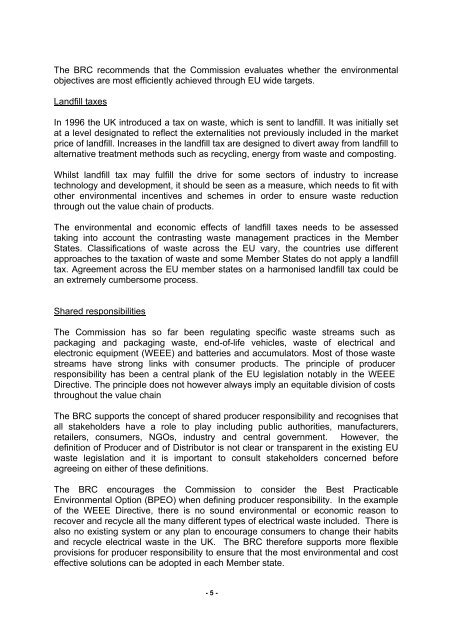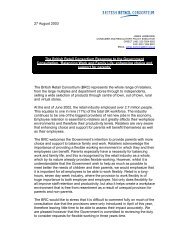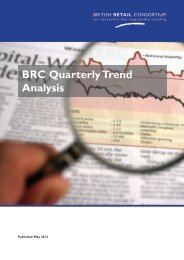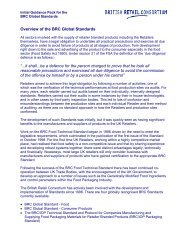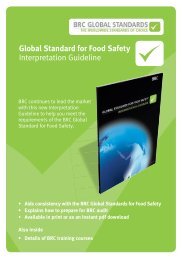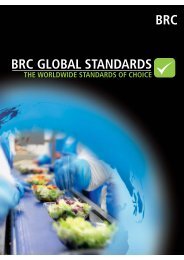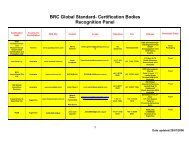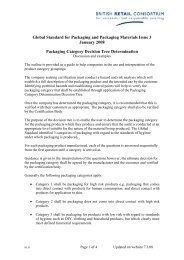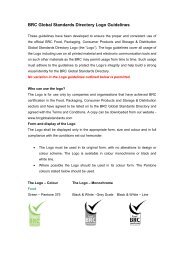1. General comments - British Retail Consortium
1. General comments - British Retail Consortium
1. General comments - British Retail Consortium
Create successful ePaper yourself
Turn your PDF publications into a flip-book with our unique Google optimized e-Paper software.
The BRC recommends that the Commission evaluates whether the environmentalobjectives are most efficiently achieved through EU wide targets.Landfill taxesIn 1996 the UK introduced a tax on waste, which is sent to landfill. It was initially setat a level designated to reflect the externalities not previously included in the marketprice of landfill. Increases in the landfill tax are designed to divert away from landfill toalternative treatment methods such as recycling, energy from waste and composting.Whilst landfill tax may fulfill the drive for some sectors of industry to increasetechnology and development, it should be seen as a measure, which needs to fit withother environmental incentives and schemes in order to ensure waste reductionthrough out the value chain of products.The environmental and economic effects of landfill taxes needs to be assessedtaking into account the contrasting waste management practices in the MemberStates. Classifications of waste across the EU vary, the countries use differentapproaches to the taxation of waste and some Member States do not apply a landfilltax. Agreement across the EU member states on a harmonised landfill tax could bean extremely cumbersome process.Shared responsibilitiesThe Commission has so far been regulating specific waste streams such aspackaging and packaging waste, end-of-life vehicles, waste of electrical andelectronic equipment (WEEE) and batteries and accumulators. Most of those wastestreams have strong links with consumer products. The principle of producerresponsibility has been a central plank of the EU legislation notably in the WEEEDirective. The principle does not however always imply an equitable division of coststhroughout the value chainThe BRC supports the concept of shared producer responsibility and recognises thatall stakeholders have a role to play including public authorities, manufacturers,retailers, consumers, NGOs, industry and central government. However, thedefinition of Producer and of Distributor is not clear or transparent in the existing EUwaste legislation and it is important to consult stakeholders concerned beforeagreeing on either of these definitions.The BRC encourages the Commission to consider the Best PracticableEnvironmental Option (BPEO) when defining producer responsibility. In the exampleof the WEEE Directive, there is no sound environmental or economic reason torecover and recycle all the many different types of electrical waste included. There isalso no existing system or any plan to encourage consumers to change their habitsand recycle electrical waste in the UK. The BRC therefore supports more flexibleprovisions for producer responsibility to ensure that the most environmental and costeffective solutions can be adopted in each Member state.- 5 -


